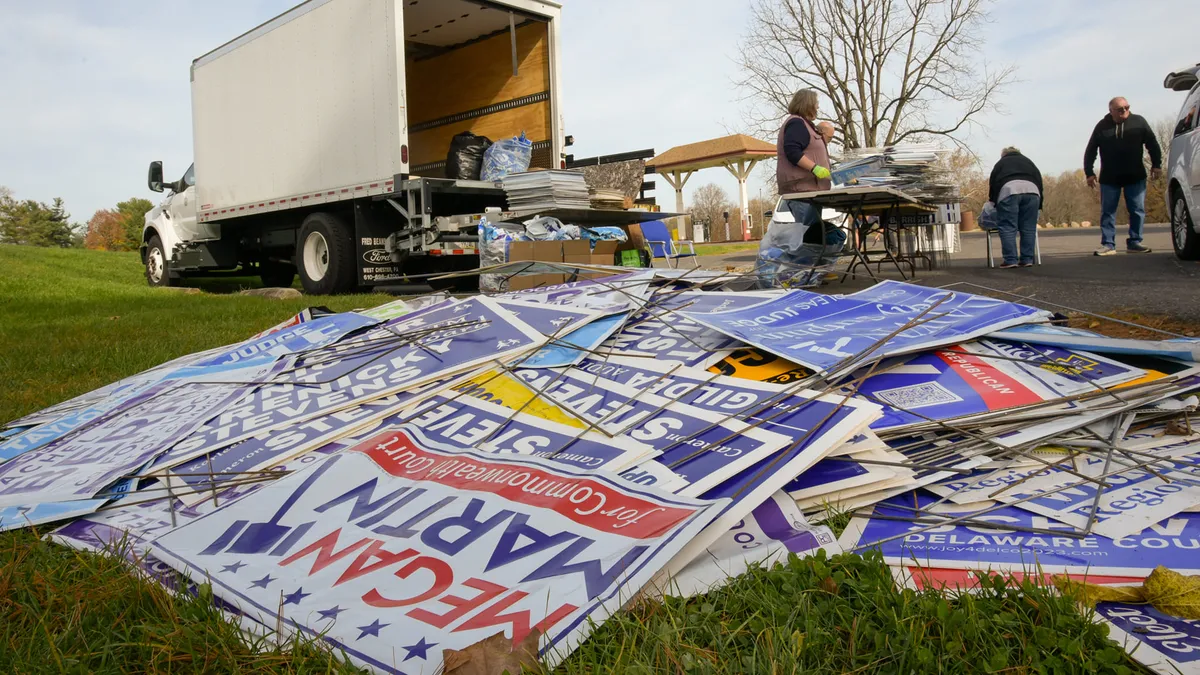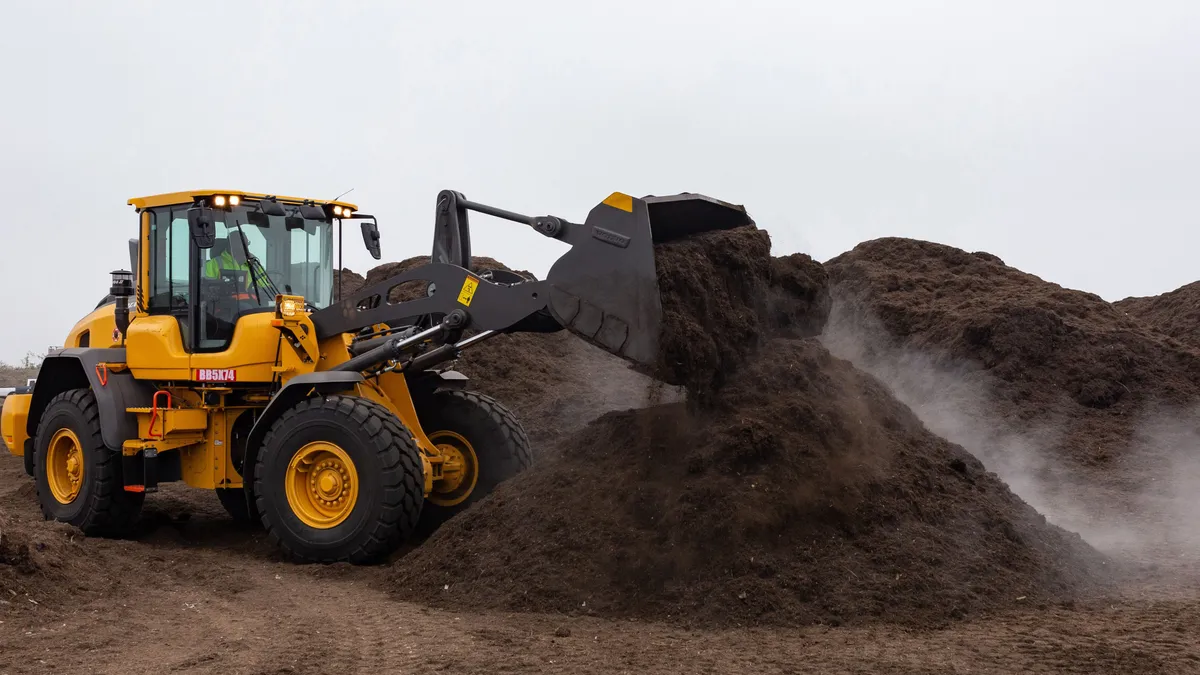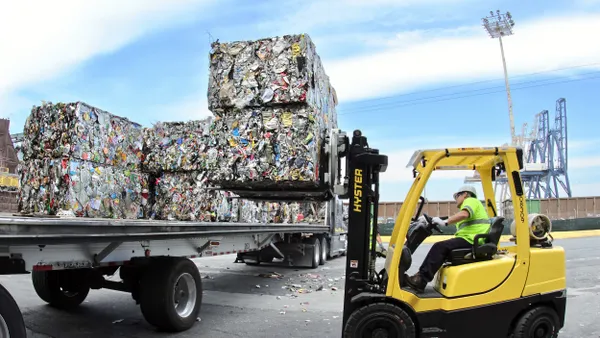Dive Brief:
- The National Waste & Recycling Association urged Massachusetts lawmakers to halt legislation that could prevent haulers from operating late at night and early in the morning. The law currently prevents restrictions on hours when trash can be collected in business, commercial, or industrial zones. The bill (S 1061), sponsored by state Sen. Cynthia Creem, would delete the words "business, commercial or" from the law.
- NWRA estimated that if the bill passes, one-third of the garbage trucks in the state would be on the road during busy hours, such as the morning commute. Steve Changaris, the group's northeast regional manager, told the Joint Committee on Municipalities and Regional Government, "We're very sensitive to the work we do — early-morning collections, late-night collections — and we always try to work with the communities to iron out any problems."
- Salem City Council President Arthur Sargent backed the bill, saying he is often awakened late at night or early in the morning by the sounds of a dumpster "being lifted 20 feet in the air, turned over and dumped 10 feet into a truck."
Dive Insight:
Dumping waste and recycling bins — large or small — into collection trucks is inherently noisy. The industry and governments try to balance the need for such services with residents' rights to a good night's sleep, and governments take that need seriously — with one waste hauler finding himself jailed for starting his route too early.
However, Ben Harvey, owner of E.L. Harvey and Sons in Westboro and a national board member for NWRA, said: "We make these things disappear, as people think, off of our streets, take them to a safe disposal location. We need the ability to continue to provide round-the-clock service to get the job done that we need to do efficiently every day."
Fewer work hours can affect routes. Changaris said an NWRA member describes trash hauling and disposal as "as an orchestra or a ballet" that would be thrown out of rhythm if the bill passes. That could lead to customer complaints about delayed pickups.
More large trucks on the road during busy hours can be dangerous for industry workers and others, as well. The Slow Down to Get Around initiative has spread across the nation as a platform to increase driver awareness around collection trucks.











